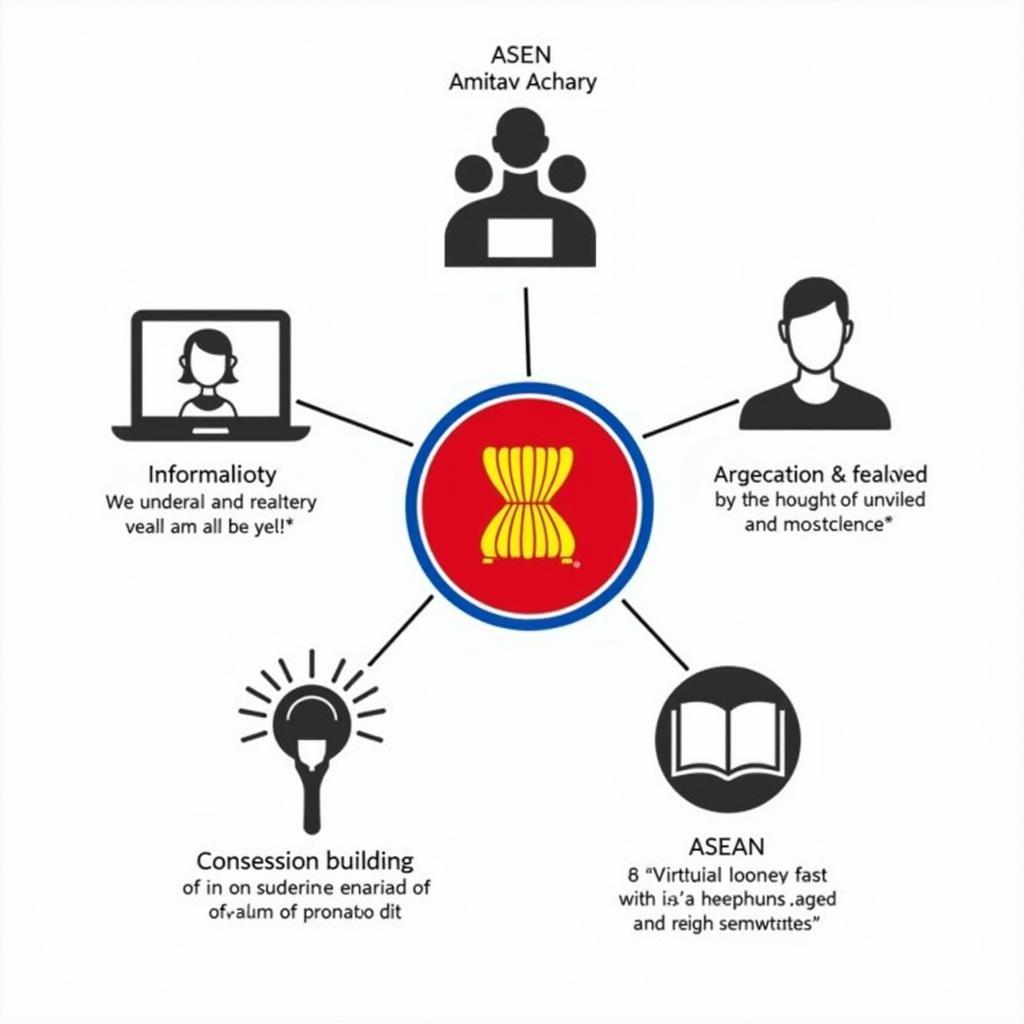Amitav Acharya, a prominent scholar in international relations, has significantly shaped our understanding of ASEAN. His work delves into the complexities of regionalism, security, and identity in Southeast Asia, offering valuable insights into ASEAN’s evolution and its role in the global landscape. His contributions have provided a crucial framework for analyzing the dynamics within ASEAN and its interactions with the broader international community.
Amitav Acharya: A Pioneer in ASEAN Scholarship
Acharya’s scholarship has been instrumental in advancing the field of ASEAN studies. He has challenged conventional wisdom and provided nuanced perspectives on the organization’s history, structure, and function. He emphasizes the importance of understanding ASEAN through the lens of its own unique regional context, rather than imposing external theoretical frameworks. His work explores the norms, values, and historical experiences that have shaped ASEAN’s trajectory. A key aspect of his analysis is the concept of “ASEAN centrality,” which he argues is a dynamic and contested notion, not a static reality.
The Evolution of ASEAN: Acharya’s Perspective
Acharya’s work traces the development of ASEAN from its inception in 1967 to its present form. He highlights the organization’s adaptability and resilience in the face of numerous challenges, including the Cold War, regional conflicts, and economic crises. He argues that ASEAN’s success lies in its ability to forge a sense of community and shared purpose among its diverse member states, despite their differing political systems, economic structures, and cultural backgrounds.
Key Concepts in Acharya’s ASEAN Analysis
Several key concepts underpin Acharya’s analysis of ASEAN. One is the notion of “constructivism,” which emphasizes the role of ideas, norms, and identity in shaping international relations. Another is the concept of “regionalism,” which he defines as a process of institutionalized cooperation among states in a given geographical area. Acharya argues that ASEAN’s regionalism is unique, characterized by informality, consensus-building, and a focus on non-interference in domestic affairs.
 ASEAN Regionalism According to Amitav Acharya
ASEAN Regionalism According to Amitav Acharya
ASEAN and the Great Powers: A Balancing Act
Acharya has also examined ASEAN’s relationship with major powers, such as the United States, China, and Japan. He argues that ASEAN has skillfully navigated the complex geopolitical landscape of the region by maintaining a balance between engaging with these powers and safeguarding its own autonomy. He stresses the importance of ASEAN centrality in managing great power rivalry in Southeast Asia.
Amitav Acharya’s Contribution to ASEAN Media and Communication
Acharya’s work also has implications for understanding the role of media and communication in shaping perceptions of ASEAN. His analysis highlights the need for accurate and nuanced reporting on the organization’s activities and challenges. He emphasizes the importance of promoting dialogue and understanding among ASEAN member states and between ASEAN and the wider world.
Who is Amitav Acharya?
Dr. Amitav Acharya is a distinguished professor of International Relations. His expertise lies in the areas of Asian security, regionalism, and global governance.
- He has published extensively on ASEAN, contributing significantly to the academic discourse on the subject.
- He has held prestigious positions at various universities and research institutions globally.
- His work has influenced policymakers and practitioners involved in ASEAN affairs.
“ASEAN’s success lies not in its perfection, but in its persistence.” – Amitav Acharya
“Understanding ASEAN requires recognizing its unique blend of norms, values, and historical experiences.” – Amitav Acharya
“ASEAN centrality is not a given, but a constantly evolving and contested concept.” – Amitav Acharya
In conclusion, Amitav Acharya’s work has provided invaluable insights into the complexities of ASEAN. His scholarship has deepened our understanding of the organization’s history, structure, and function, and his analysis of regionalism, security, and identity has shed light on the dynamics within ASEAN and its interactions with the world. His contributions continue to shape the field of ASEAN studies and inform policy discussions about the region’s future.
Frequently Asked Questions about Amitav Acharya and ASEAN
- What are Amitav Acharya’s most influential works on ASEAN?
- How has Acharya’s work shaped the field of ASEAN studies?
- What is Acharya’s perspective on ASEAN centrality?
- How does Acharya analyze ASEAN’s relationship with great powers?
- What are the key concepts in Acharya’s analysis of ASEAN?
- What is the relevance of Acharya’s work to understanding Asean Media and communication?
- Where can I find more information about Amitav Acharya’s publications?
For further information on ASEAN, you might find our ase study books 2020 helpful.
You may also be interested in exploring other articles related to ASEAN politics and economics on our website. We have a wealth of resources available, covering a wide range of topics relevant to Southeast Asia.
When you need assistance, please contact us via Phone: 0369020373, Email: [email protected], or visit our address: Thôn Ngọc Liễn, Hiệp Hòa, Bắc Giang, Việt Nam. Our customer service team is available 24/7.

